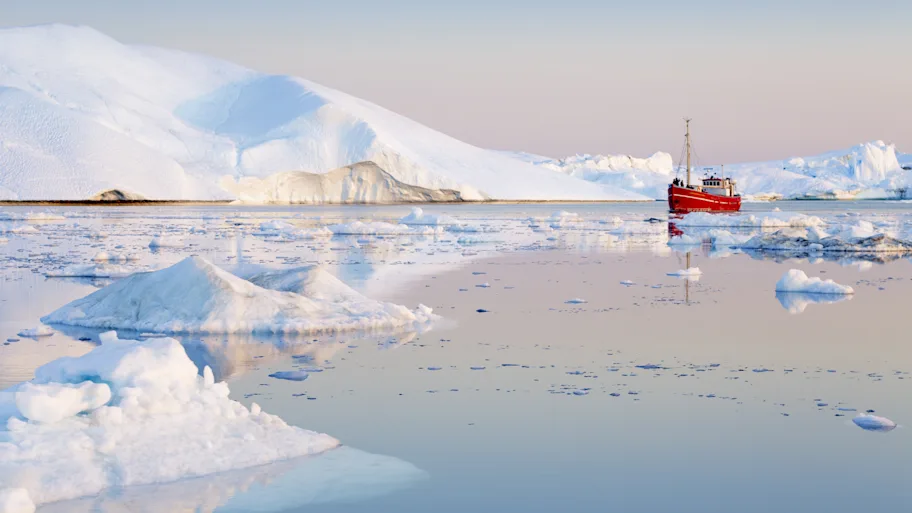
- Science news
- Open science policy
- Embracing the future: open science in the US federal context and beyond
Embracing the future: open science in the US federal context and beyond
Hosted by The Center for Open Science (COS) in collaboration with NASA, Dr Julia Kostova, Director of Publishing and Head of the U.S. Division at the open access publisher Frontiers, participated in the conference "Embracing the Future: Open Science in the U.S. Federal Context and Beyond." This event highlighted the significant strides and ongoing efforts in promoting open science, a movement crucial for fostering innovation and tackling global challenges.

The conference was a pivotal moment in a year designated by the White House Office of Science and Technology Policy (OSTP) as the Year of Open Science (YOS) celebrating the benefits of open science and inspiring more scientists to adopt these practices. Seventeen federal agencies, alongside universities and other intergovernmental bodies, rallied behind this initiative, marking a significant policy shift towards transparency and accessibility in scientific research. This movement aligns with the global commitment to open science, underscored by UNESCO’s Recommendation on Open Science adopted in late 2021.
Highlighting achievements and future opportunities
The conference brought together representatives from UNESCO, OSTP, and NASA, who shared insights into the initiatives and achievements realized during the YOS. These discussions highlighted the successes and ongoing opportunities in the global coordination of the open science reform movement. Among the key speakers was Dr. Kostova
Dr Kostova, who participated in the panel discussion titled "Open Science for Inclusive, Sustainable, and Transformative Climate Innovation", emphasized that open science is crucial for managing climate tipping points and stressed the importance of the Open Science Charter, launched by the Frontiers Research Foundation at COP28. This charter advocates for mandatory open access to all publicly funded scientific knowledge by 2030, a goal that is both ambitious and necessary for accelerating scientific advancements.
The urgency of open science in addressing climate change
In her presentation, Dr Kostova highlighted the urgent need to transition to a Net Zero economy by 2050, calling it humanity’s greatest challenge. She argued that achieving this goal would require a multi-pronged approach, involving international policymaking, substantial public and private investment, and a revolution in both individual and collective behavior. At the heart of these efforts, Dr Kostova stressed, must be science - open, accessible, and rapidly shared.
"Science needs to underpin our response to the climate crisis," she said, pointing out that past scientific advancements have saved millions of lives. From vaccines for smallpox and polio to the recent COVID-19 vaccines, science has been a powerful catalyst for solving some of the world's most pressing issues. However, to address the climate crisis effectively, access to scientific knowledge must be expanded.
Barriers to access and the path forward
A significant barrier to progress, Dr Kostova noted, is that only about 54% of climate change research published in the last five years is freely accessible. Paywalls restrict access to critical research, limiting the ability of many scientists, practitioners, entrepreneurs, and students to build upon these breakthroughs. Given the scale and urgency of the climate crisis, expanding access to scientific research is imperative.
Dr Kostova praised recent U.S. guidelines directing all federally funded research to be made openly available, with agencies like NASA already moving in this direction. She also highlighted President Biden’s support for open science, particularly in the context of his cancer moonshot initiative, which argues that paywalls slow down scientific progress and innovation.
Time to act
The transition to open science will require collective action from all stakeholders. Subscription publishers need to adopt open access models, funders and governments must mandate open publishing for publicly funded research, and university leaders should incentivize open science practices. Frontiers' Open Science Charter outlines a roadmap for unlocking global scientific knowledge to address the climate crisis and other societal challenges.
"If you're a scientist, a technologist, a policy maker, or a concerned citizen who believes that science needs to underpin our response to the climate crisis, then I invite you to sign this Charter, which has already been endorsed by over 2,000 leaders worldwide," urged Dr Kostova.
Watch the panel discussion in full here.
About Frontiers
Founded in 2007, Frontiers is the 6th largest scientific publisher. We publish rigorously peer-reviewed, quality-certified research by the world's top experts. Scientists empower society and our mission is to accelerate scientific collaboration by making science open. We place the researcher at the center of everything we do and enable the research community to develop the solutions we need to live healthy lives on a healthy planet. Featuring custom-built technology, artificial intelligence, and rigorous quality standards, our research articles have been viewed more than 2.7 billion times, reflecting the power of research that is open for all.
About the Frontiers Research Foundation
The Frontiers Research Foundation is a not-for-profit organization based in Switzerland, which was founded by Kamila and Henry Markram, neuroscientists from the Swiss Federal Institute for Technology (EPFL). It raises funds to support programs that accelerate scientific solutions for healthy lives on a healthy planet.






